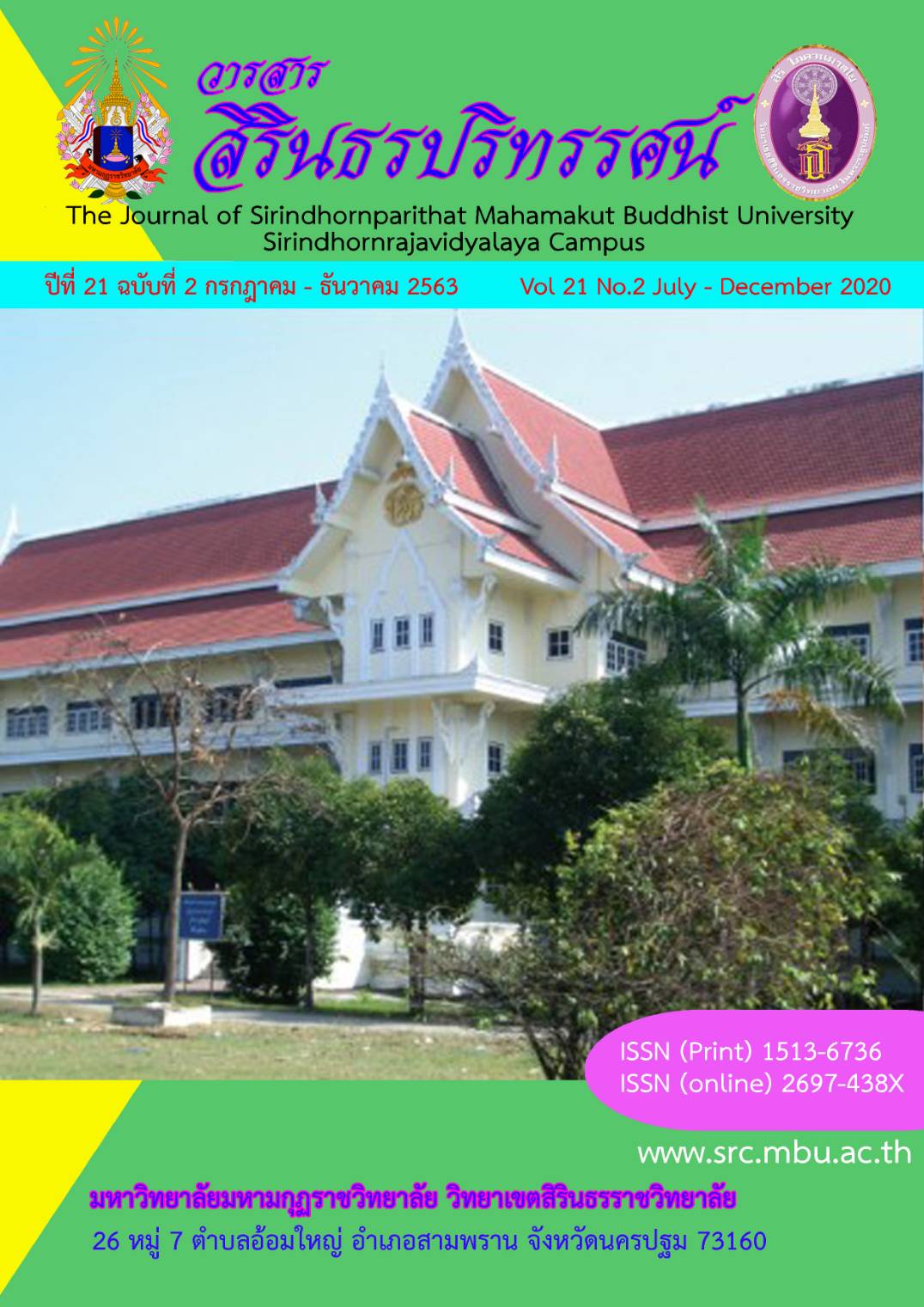A Study of Cultural Factors Influencing Public Organizational Justice
Keywords:
Family Culture; Social Culture; Organizational Culture; Organizational JusticeAbstract
The purposes of this research were: 1) to study the perceptions of employees towards recognition of justice from cultural factors; 2) to study the perceptions of employees towards public organizational justice; 3) to study a relationship between cultural factors and public organizational justice, and 4) to study the cultural factors influencing public organizational justice. The samples used in this study were 392 employees who work in public organizations in Bangkok. The instrument used to collect data was a research questionnaire. Statistics used in this research consisted of Percentage, Mean, Standard Deviation, Correlation, and Multiple Regression Analysis.
The research findings showed that:
- The perceptions of employees towards recognition of justice from cultural factors, in total, were at a high level. In particular, the family culture had the highest mean value, followed by social culture and organizational culture respectively.
- The perceptions of employees towards public organizational justice, in total, were at a high level. In particular, informational justice had the highest mean value, followed by distributive justice and procedural justice respectively.
- The correlation between cultural factors and public organizational justice was at 0.01 level of significance with a correlation value between 0.160 to 0.669, which the highest correlation was a relationship between organizational culture and public organizational justice.
- The cultural factor which had the highest influence on public organizational justice was organizational culture, followed by social culture and family culture respectively.
References
ชูชัย สมิทธิไกร. (2543). “แนวทางการสร้างระบบประเมินผลการปฏิบัติงานที่มีความยุติธรรม”. วารสารเพิ่มผลผลิต. 5, 43-53.
ธงชัย สันติวงษ์. (2539). การบริหารเชิงกลุยุทธ์. กรุงเทพฯ : ไทยวัฒนาพานิช.
ประเวศ วะสี. (2554). “ความยุติธรรม”. สืบค้นเมื่อ วันที่ 17 ธันวาคม 2558 จาก http://www.mcu.ac.th/site/articlecontent_desc.php?article_id=935&articlegroup_id=187.
ผจงจิตต์ อธิคมนันทะ. (2521). การเปลี่ยนแปลงสังคมและวัฒนธรรม. กรุงเทพฯ : สำนักพิมพ์มหาวิทยาลัยรามคำแหง.
พร ภิเศก. (2546). “วัฒนธรรมองค์การและปัจจัยบางประการที่ส่งผลต่อประสิทธิผลโรงเรียนเหล่าสายวิทยาการของกองทัพบก”. ปริญญานิพนธ์ การศึกษาดุษฏีบัณฑิต. มหาวิทยาลัยศรีนครินทรวิโรฒ.
วิกิพีเดีย. (2559). “ความยุติธรรม”. สืบค้นเมื่อ 2 มีนาคม 2559 จาก https://th.wikipedia.org/wiki/.
วิรัช สงวนวงศ์วาน. (2547). การจัดการและพฤติกรรมองค์การ. กรุงเทพฯ : เพียร์สัน เอ็ดดูเคชั่น อินโด-ไชน่า.
ศรีศักร วัลลิโภดม.(2554). พัฒนาการทางสังคม-วัฒนธรรมไทย. กรุงเทพฯ : เมืองโบราณ.
สมยศ เชื้อไทย. (2545). ความรู้นิติปรัชญาเบื้องต้น. กรุงเทพฯ : สำนักพิมพ์วิญญูชน.
สมยศ นาวีการ. (2543). การบริหารและพฤติกรรมองค์การ. กรุงเทพฯ : โรงพิมพ์กรุงเทพมหานคร.
สุขุม นวลสกุล และโกศล โรจนพันธ์. (2539). ทฤษฎีการเมืองสมัยโบราณและสมัยกลาง. กรุงเทพฯ : สำนักพิมพ์มหาวิทยาลัยรามคำแหง.
สุขุมพงศ์ ชาญนุวงศ์ อาชว์ภูริชญ์ น้อมเนียน และบุญวดี มนตรีกุล ณ อยุธยา. (2559). “ความยุติธรรมในมิติด้านวัฒธรรม จริยธรรมทางศาสนาและธรรมาภิบาล”. Veridian E-Journal, Silpakorn University. 9(13), 1370-1381.
สุขุมพงศ์ ชาญนุวงศ์ และบุญวดี มนตรีกุล ณ อยุธยา (2560). การประยุกต์ใช้หลักธรรมาภิบาลที่ส่งผลต่อความยุติธรรมในองค์การ. วารสารการวิจัยเพื่อพัฒนาชุมชน. 10(3), 36-47.
สุพัตรา สุภาพ. (2540). สังคมวิทยา. กรุงเทพฯ : สำนักพิมพ์ไทยวัฒนาพานิช.
Adams, J. S. (1965). Advances in experimental psychology. New York: Academic Press.
Folger, R. (1998). Organizational justice and human resource management. Thousand Oaks, CA: Sage.
Sheppard, B. H., Lewicki, R. J. and Minton, J. W. (1992). Organizational justice. New York: Macmillan.
Sukhumpong Channuwong. (2018). “The relationship between good governance and organizational justice: A case study of Bangkok government officials”. Asia Pacific Social Science Review, 18(3), 43-56.
World Justice Project. (2019). Rules of law Index 2019. Retrieved from www.http://worldjusticeproject.org.
Downloads
Published
Issue
Section
License
บทความที่ได้รับการตีพิมพ์เป็นลิขสิทธิ์ของ มหาวิทยาลัยมหามกุฏราชวิทยาลัย วิทยาเขตสิรินธรราชวิทยาลัย
ข้อความที่ปรากฏในบทความแต่ละเรื่องในวารสารวิชาการเล่มนี้เป็นความคิดเห็นส่วนตัวของผู้เขียนแต่ละท่านไม่เกี่ยวข้องกับหาวิทยาลัยมหามกุฏราชวิทยาลัย วิทยาเขตสิรินธรราชวิทยาลัย และคณาจารย์ท่านอื่นๆในมหาวิทยาลัยฯ แต่อย่างใด ความรับผิดชอบองค์ประกอบทั้งหมดของบทความแต่ละเรื่องเป็นของผู้เขียนแต่ละท่าน หากมีความผิดพลาดใดๆ ผู้เขียนแต่ละท่านจะรับผิดชอบบทความของตนเองแต่ผู้เดียว




